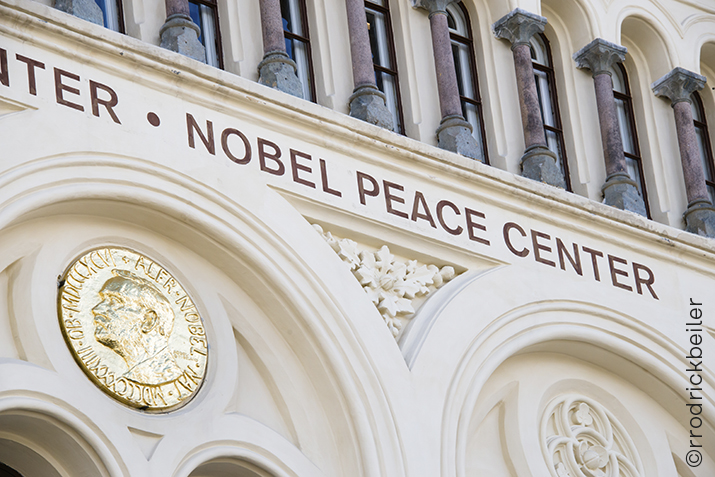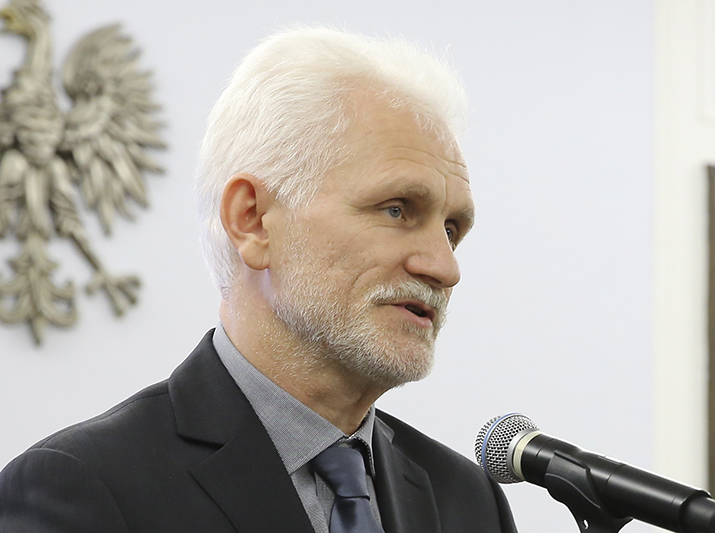NOBEL PEACE PRIZE TO ALES BALIATKI AND TO RUSSIAN AND UKRAINIAN ASSOCIATIONS
There may be something rotten in the state of Denmark but in Norway they still read Petrarch. There is no other explanation. The Nobel Peace Prize was awarded for «the consistent efforts in favour of humanist values, anti-militarism and principles of law». The fourteenth-century ideals that aspired to balance between instinct and reason were echoed by the Oslo Committee, which was able to turn its gaze to those who «have for many years promoted the right to criticize power and protect the fundamental rights of citizens» and «have made an outstanding effort to document war crimes, human rights abuses and the abuse of power». A courageous attitude that demonstrates «the significance of civil society for peace and democracy». The recipients of the award are an imprisoned human rights advocate and two organizations: the Belarusian dissident Ales Baliatki, founder of the Viasna organization, the Russian human rights group « Memorial Society» and the Ukrainian «Center for Civil Liberties».
The Nobel Peace Prize is the only Nobel that may also be awarded to organizations and not just to individuals. 129 have been awarded since 1901 making that of 2022 number 130. Usually, however, during conflicts, at least those involving Western countries in some way, it is not assigned. In all, it has happened 19 times: 8 during the First World War and Post World War period, 5 during the Second World War and 6 as a result of the Cold War between the Western and Soviet blocs. This year, however, the choice was made to focus on the conflict that is inflaming a geographical area on the borders of Old Europe and on a very close ally of Putin, Aljaksandr Lukašėnka, President of Belarus who does not allow any kind of opposition in his country.
In fact, Bialiatski was one of the promoters of the democratic movement which arose in Belarus in the mid-1980s. He has dedicated his life to promoting democracy and the peaceful development of the nation. In 1996 he founded Viasna, which means Spring, a name often associated with an attempt at cultural, political or social rebirth. At the end of 2010, for example, there was the Arab Spring, with demonstrations in Egypt, Syria, Libya, Tunisia, Yemen, Algeria, Iraq, Bahrain, Jordan and Djibouti to name just a few countries. More than ten years have passed. No one talks about it anymore but almost all the regimes are still there. Like that of Belarus, which is working hand in glove with Moscow.
The Russian human rights organization «Memorial» and the Ukrainian «Center for Civil Liberties»
Violent protests manifested among the population in 1996, when controversial constitutional amendments gave Lukašėnka a power that was essentially absolute. During that time, Viasna provided support to the arrested protesters and their families, and later developed into a far-reaching human rights organization, which documented the use of torture by the Belarusian authorities against political prisoners. The government has repeatedly tried to silence Bialiatski, who was jailed for the first time from 2011 to 2014 and again in 2020, following the demonstrations for democracy that swept across the country. The Nobel Prize winner is currently being held awaiting trial.
And then there are the organizations fighting for human rights in Russia and Ukraine. Of course, the choice may seem obvious, but nonetheless important. Rights must be defended where they are trampled on, and if the violations are there for all to see, so much the better: no one can say they didn't know. After all, the commitment of these associations goes back a long way to the Russian invasion of Ukraine. "Memorial Society" was founded in 1987 by human rights activists from the Soviet Union, with the aim of remembering the victims of the regime and dealing with past crimes to prevent them from happening again. The idea is not new, but it is relative to the present day.
After the collapse of the USSR, Memorial grew to become the largest human rights organization in Russia. It has also been at the forefront of fighting militarism, promoting human rights and a system of government based on the rule of law. In particular, during the Chechen wars, it collected and verified information on the abuses and crimes perpetrated against the civilian population by Russian and pro-Russian forces. In 2009, the head of Memorial’s branch in Chechnya, Natalia Estemirova, was killed as a result of this work.
«Memorial» was shut down by the Moscow authorities who branded it a «foreign agent»
Relating what happens in an autocratic regime has always been difficult, if not impossible. Freedom of the press is one of the principals of democracy. Russia is not a democracy and after threats, imprisonments and disappearances, Memorial was branded a "foreign agent". Two years ago, the authorities decided on its forced liquidation and the definitive closure of the documentation center.
More recently came the birth of the "Center for Civil Liberties", founded in Kyiv in 2007, with the aim of promoting human rights and democracy in Ukraine. The organization has taken a stand to strengthen civil society and put pressure on the authorities to support the country not only in the path of emancipation from Russian imperialism, but also in the full realization of a democratic system. After the invasion in February 2022, the Center for Civil Liberties made efforts to identify and document Russian war crimes against the Ukrainian population. In collaboration with international partners, it is playing a fundamental role in identifying the culprits.








